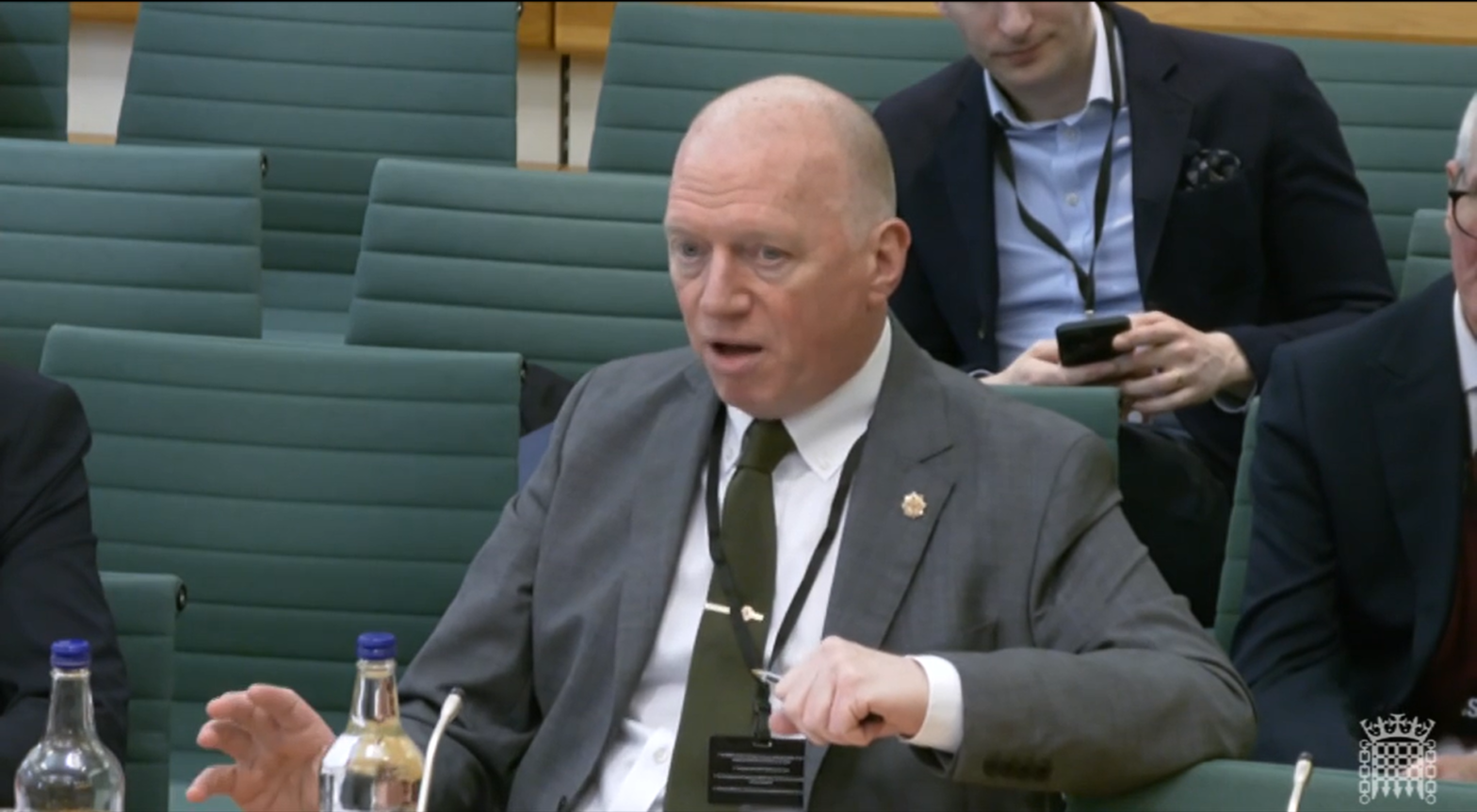IN AN EXTRAORDINARY move, the general secretary of the Fire Brigades Union (FBU), Matt Wrack, has refused to provide information to a key committee of MPs who were seeking clarification over his claim, made to them in an oral evidence session, that he was not aware of any cases where the union had reached non-disclosure agreements (also known as ‘gagging clauses’) with members of its staff who had made allegations of workplace bullying.
Wrack’s astonishing refusal, made in an exchange of correspondence with the chair of the home affairs select committee, Dame Diana Johnson MP, represents the latest twist in the FBU’s ‘hush money’ scandal, which centres on secret payments to members of union staff who alleged they had suffered mistreatment – including at the hands of Wrack personally – in the workplace.
The cross-party committee – one of the most prominent and influential in parliament – is currently carrying out an inquiry into workplace culture in the fire and rescue service. On 5 March, while giving evidence in person to the committee, Wrack was asked by Dame Diana – herself a Labour MP – whether the FBU had ever used non-disclosure agreements in the workplace. Dame Diana had pointed out to Wrack that the Trade Union Congress (TUC), of which he is currently the president, was opposed to the use of non-disclosure agreements to silence employees who had made allegations of bullying and harassment.
After initially attempting to deflect the question, Wrack was eventually forced to concede that the FBU had indeed used these agreements. However, in a comment that will have raised the eyebrows of many within the union, he went on to tell the committee that there were ‘no cases in the Fire Brigades Union that I am aware of where there are allegations of discrimination or bullying that have led to a non-disclosure agreement’.
This blog can now reveal that after subsequently receiving evidence showing his claim to be unsustainable, Dame Diana wrote to Wrack on 22 March seeking clarification on his comments. In particular, Dame Diana asked Wrack to confirm on how many occasions in the past five years the FBU had reached a non-disclosure agreement with an employee who had made allegations of bullying, harassment or discrimination.
In a reply to Dame Diana, dated 5 April, Wrack refused point-blank to answer the question, stating that he was not willing to do so because he had a ‘duty of care’ and ‘duty of confidentiality’ to any employee who had signed such an agreement, and that he was not prepared to ‘breach agreements the FBU made in good faith with individuals when they left their employment’.
Aside from anything else, Wrack’s reply completely missed the point: Dame Diana had never asked him to disclose the identity of any employee; she merely wanted to know the number of times such an agreement had been reached inside the union. In any case – and as Wrack would surely have known – oral and written evidence provided to a select committee is covered by ‘absolute privilege’, meaning that the person or organisation giving the evidence is immune from any legal proceedings founded upon that evidence.
In his letter, Wrack also criticised Dame Diana for focusing on the union at all, arguing that the committee should instead train its guns on fire and rescue service bosses. He went on to say, ‘Our members interpret this line of questioning as an attempt to undermine their union,’ – though it is not clear how many members he had consulted before making that statement. Indeed, it is not clear that Wrack consulted even with the union’s executive council before sending his letter to the committee.
In response to Wrack’s letter, Dame Diana wrote to him again on 11 April. She pointed out to Wrack that, under its remit, the committee was perfectly entitled to raise questions about any matter of public concern, and that included the matters she was raising with him.
Dame Diana went on to ask again on how many occasions the FBU had reached non-disclosure agreements with employees who had made allegations of bullying, harassment or discrimination. She asked to be provided with ‘clear answers’ within 14 days.
In a further reply dated 24 April, Wrack again refused to provide the information requested. His terse single-page letter again criticised Dame Diana for focusing on the union instead of fire and rescue service leaders. He added that it would be ‘inappropriate for the FBU to disclose details of individual cases (for instance dates or names)’ – even though, once again, Dame Diana had not asked to be furnished with names and dates!
Wrack’s controversial actions are bound to stir further debate and discord inside the FBU. What we appear to be witnessing are the desperate efforts of a general secretary who is determined to avoid being held to account for a scandal that has turned into a car crash for the union. It’s one thing trying to fob off ordinary members (or even executive council members) who raise questions about that scandal; it’s another thing entirely trying to fob off members of parliament.
It is inconceivable that, having been shown such disregard by Wrack, the home affairs select committee will decide to just drop the matter. Select committees do not generally take kindly to being brushed off in such a manner. Even worse for the union, if the committee’s members feel they were misled by Wrack at the oral evidence session on 5 March, or if they feel sufficiently aggrieved at his later refusal to provide additional evidence, they could choose to refer him to the parliamentary privileges committee, which has the power to launch an investigation. That committee may find Wrack in ‘contempt of parliament’. Such an outcome would be a disaster for the union.
Wrack’s attitude towards a highly-influential parliamentary committee, several of whose members are Labour MPs who have previously demonstrated support for the FBU’s campaigns and causes, cannot possibly serve the interests of the union’s membership. This blog does not argue that the general secretary should show undue reverence to these MPs, but we do argue that it is deeply irresponsible and counter-productive to treat them with contempt and to refuse to properly engage with them. After all, when it comes to the future of the fire and rescue service – including on such crucial questions as collective bargaining, operational resources, funding and pensions – these MPs will hold enormous sway. How can it possibly be to the union’s benefit to refuse to answer questions being asked by these MPs as part of a high-level parliamentary inquiry?
In attempting to save his own reputation, it seems that Matt Wrack is willing to sacrifice that of the union.
This cannot go on.
(Note: the exchange of letters between Wrack and Dame Diana can be read here.)

